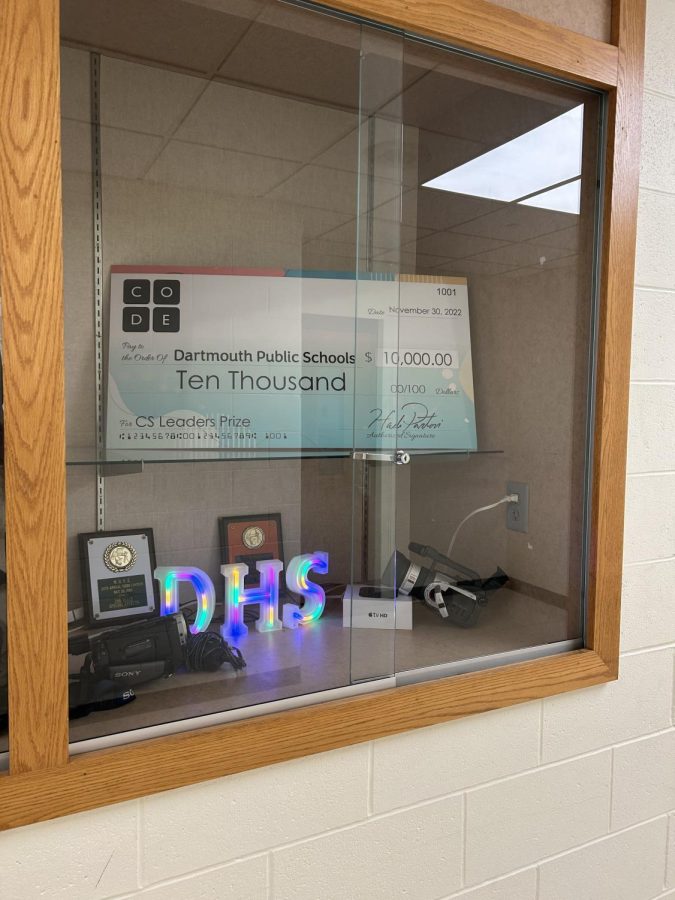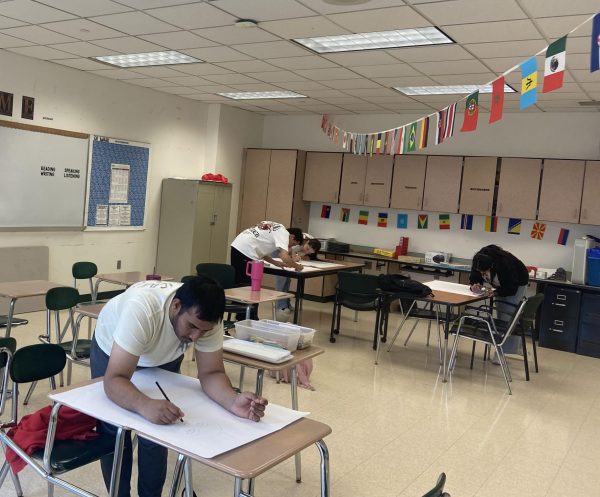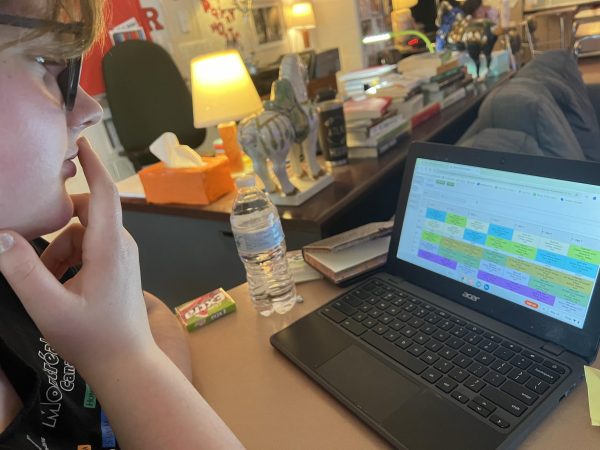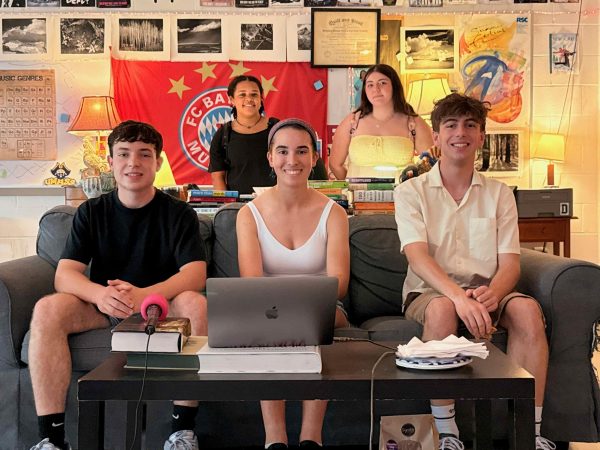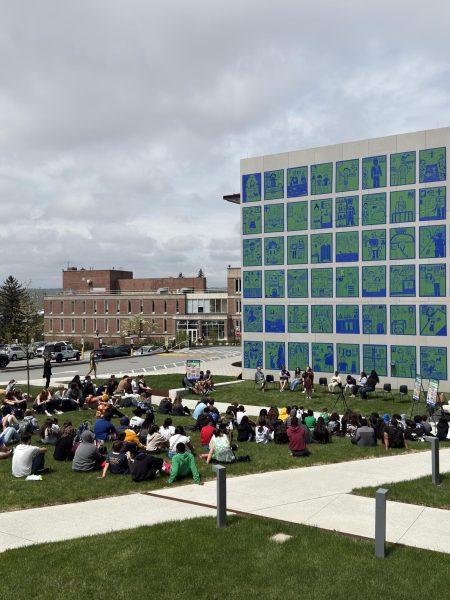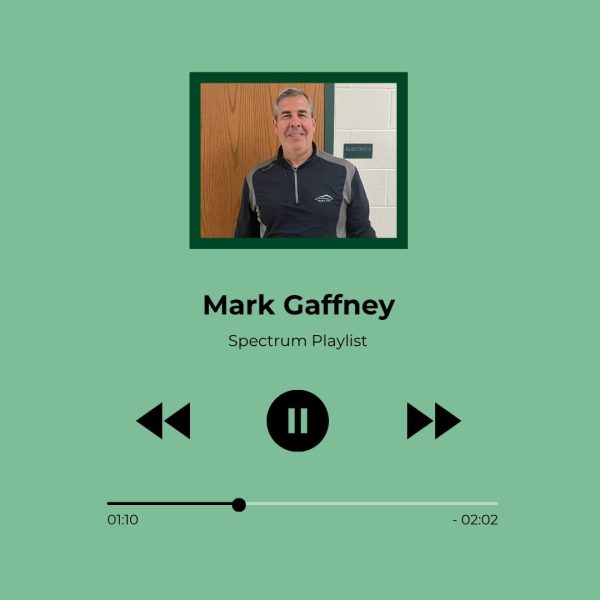The Future of Computer Science
A copy of the grant check is displayed on the A-Floor.
Almost six years ago, DHS unveiled the computer science program with the assistance of former Principal Ross Thibault. A computer science credit is currently needed by students in order to graduate. This requirement puts computer science at the same level as an English or Math class. On paper the program is treated with importance and admin understands its value, but is the program able to grow with the new demands of skilled computer scientists in the workforce?
Computer science is a field that is important in every industry and its raised importance in the last few years has made it crucial for students to gain an interest in the necessary field. Even if students do not go on to work in the field, they can still learn valuable skills such as problem solving and deep thinking through programming classes.
At the beginning of the program there were over 12 courses offered and only one computer science teacher. Brian Guillotte, one of the first computer science teachers at DHS, felt this surplus of courses had no direct path for students to take if they wanted to further their learning in computer science. DHS now has five courses available to students including an intro class, two electives, and two AP’s. Both computer science teachers agree the course load is at a better place, but in an ever growing field there is always room for improvement.
In December 2022, DHS won the CS Leader Prize by Code.org which totaled $10,000. DHS was one of 102 schools across the country to receive this prize. In a press conference at the school, DHS was awarded the big check with Hanna Weissman, director of policy at Code.org and Deborah Boisvert, director of CSforMA, present. By receiving the award, DHS committed to adding a new computer science class, a school wide hour of code or assembly, and providing a plan for expansion within the department. According to the Code.org website, the money was awarded to fund a project of the school’s creation through DonorsChoose, which helps teachers and schools get access to resources needed to help learning.
During the press conference, Principal Ryan Shea emphasized this achievement, saying “today’s grant opportunity is a step in the correct direction for supporting students in the next generation of our mission.”
With this new funding, Mr. Guillotte explains that there is more “wiggle room to purchase hardware or software, to put that in front of our students.”’
The press conference spoke highly of the importance of not just computer science but coding and programming in particular.
Now that the check is in our hands, what are the plans for its use?
Over holiday break, Rob Perrotti, head of the B.I.T (business, innovation, and technology) Department, worked hard to have DonorsChoose match the original grant value. There are many plans circulating among the department about what to do with the funds, but one of the main ones is creating a “modern computer science classroom.” In room A4, connected to Computer Science Teacher Eric Bosworth’s class, renovations including new furniture, mounted monitors, and some aesthetic changes are taking place. The room will become a “flipped classroom” and will serve as a vehicle for a new teaching style that allows students to learn at their own pace and do most learning through video lectures and pure experience. This new environment is predicted to encourage more students to get involved and change how they view computer science.
With half the grant left, the rest of the funds are being held for now, in hopes of doubling its value. If the money is matched, then 8-10 more higher-end-CPU computers will be purchased for computer science classrooms. These computers will allow students to have access to more professional programs most current DHS computers aren’t equipped for. DHS has lots of plans for the department and teachers are not letting lack of funds get in the way of their goals.
Mr. Perrotti has been using DonorsChoose for five years and has gotten 32 projects funded from it. There are currently three projects listed that anyone can donate to that will directly benefit students in B.I.T classes. If our students have access to high end materials, then they are more likely to gain an interest in the material presented to them. With the link here, one-time or monthly donations can be received to help DHS fund these projects.
DHS is one of 23 schools in Massachusetts to receive the AP Computer Science Female Diversity Award from the College Board. The school was recognized for having “either 50% or higher female exam representation in one of or both AP computer science courses, or a percentage of female computer science exam takers that meets or exceeds that of the school’s female population,” according to the College Board. The College Board also reported that female students who take AP Computer Science Principles in high school are five times more likely to major in computer science in college.
With new funding and national recognition, DHS is on track to develop a computer science program that prepares students for college and beyond. Starting with the class of 2027, a 1.5 credit in the B.I.T department will be required to graduate: one computer science credit and half in another department course. The updated and comfortable classroom will encourage students to take risks and take on more difficult projects. Mr. Guillotte offered the suggestion of a Directed Study. This would allow students who have taken every computer science course a chance to work on an advanced project of their choice.
In five years, DHS has grown their computer science program with the changing times of technology in the world. Because of the valued program, students are exposed to an in-demand field they may not have thought they would be interested in. Even if students do not continue down the computer science path, they still have the tools to problem solve and think deeply about complex tasks. DHS’s head media and technology teachers are cultivating a positive environment for students to become the next accredited computer scientists and programmers.

